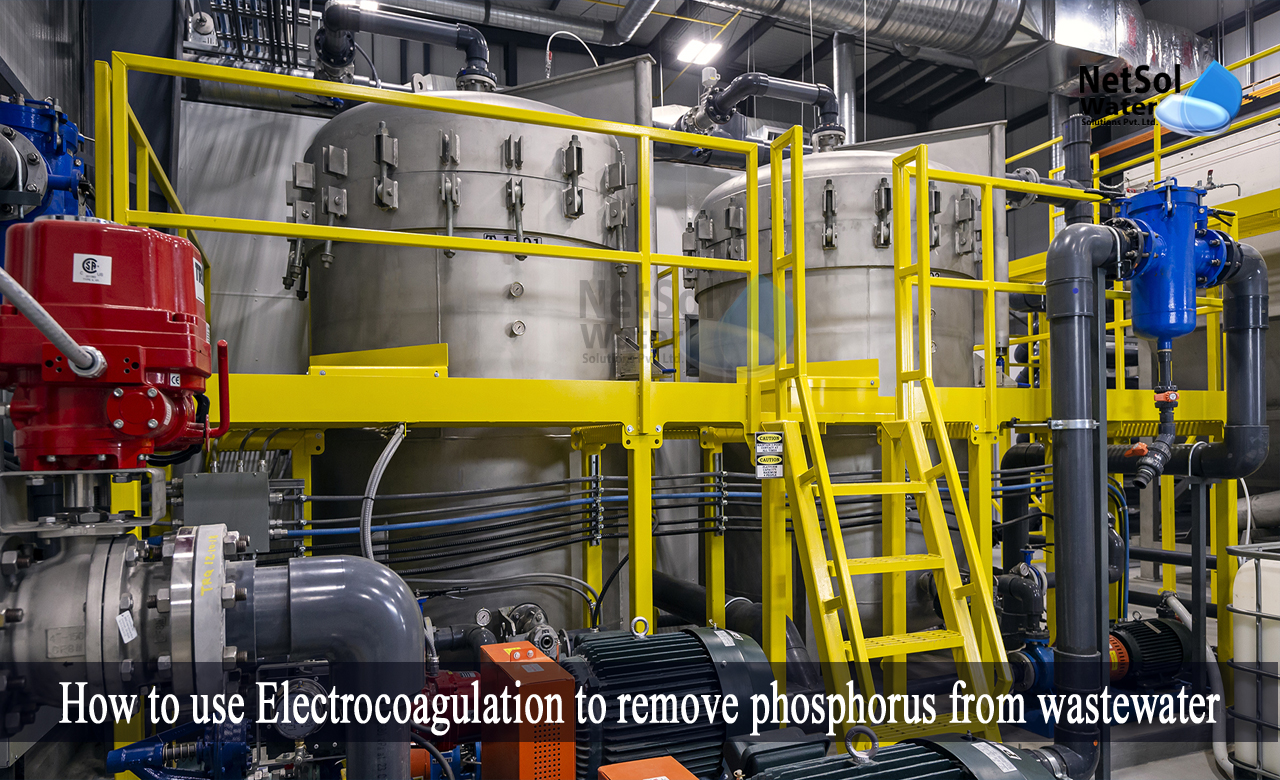What is phosphorous?
One of the most prevalent nutrients on the globe is phosphorus. Our bones and tooth enamel are mostly made of the minerals hydroxylapatite and fluoroapatite, which belong to this category. Additionally, phosphorous is essential to the health of cells' DNA, RNA, and ATP.
These characteristics make this mineral extremely valuable for the growth and operation of living things. Pure phosphorus is used to create industrial process chemicals, and it can be used to generate calcium phosphate, a dietary supplement for animals. The agricultural sector uses phosphorus the most extensively. Fertilizers are rated for nitrogen, potassium, and phosphorus, which are essential for photosynthesis, the process by which plants make sugars for cellular energy.
In this post, we'll talk about how high phosphorus levels affect ecosystems, and how cutting-edge electrocoagulation technology may be used, to remove phosphorus from wastewater and water sources efficiently and sustainably.
Sources of phosphorous
Even though phosphorus is widely used in industry and is present in living things, there are other ways phosphorus can reach water sources, than through the erosion of rocks and silt.
1: They are occasionally added to process water to treat boiler water and stop pipe corrosion. As a result, they may find their way into domestic, industrial, and drinking water streams.
2: Phosphate-rich fertilizers can enter surface rivers through farm runoff, and they can also make their way through soil to groundwater sources.
3: Phosphorus can enter water systems through faeces, or decomposing organisms because it is found in organic lifeforms.
What harm can phosphorus cause?
1: At worst, extremely high phosphorus levels can cause digestive problems in both people and animals.
2: The impact of phosphorus on plant life and the cascading effects it has on nearby aquatic life, are the most worrisome effects of phosphorus in surface waterways.
3: Eutrophication can result from high phosphorus concentrations in an aquatic ecosystem. This procedure essentially accelerates the ecosystem's ageing process. The impacts of eutrophication result in an increase of plankton and algae, which upsets the natural cycle of production and consumption. Because, there will be more food sources accessible, aquatic animal populations will rise.
4: However, if a layer of plankton and algae covers the water's surface, sunlight can no longer penetrate to other types of plants or marine life.Bacteria will start breaking down the organic waste when those plants die, and they do this by using the oxygen in the water.
All of the oxygen in the water can be consumed by bacteria over time, killing most aquatic lifeforms like fish, which also need to be decomposed. In the absence of oxygen, new bacteria will have to emerge to facilitate decomposition. Instead of carbon dioxide, these bacteria will generate methane.Everything leads to the water source becoming a swamp, filled with dead and decomposing organic stuff in the end.
5: There may be an increase in blue-green algae (cyanobacteria), which can produce toxins that harm wildlife as well as humans, by causing skin irritation or liver damage.
How to use EC to remove phosphorus from wastewater?
It is essential to lower the levels of phosphorus in wastewater and surface water, in order to avoid these kinds of risky environmental consequences. An efficient wastewater treatment technique for this is electrocoagulation, which removes phosphorus from wastewater.
pH, current density, duration, and electrode material all need to be tuned, in order to maximize phosphorus removal.
Conclusion
Netsol Water make sure that our specialised EC systems are running as efficiently as possible, for our clients' highest phosphorus removal in wastewater or a surface water source, at an optimized operating cost.
Netsol Water is Greater Noida-based leading water & wastewater treatment plant manufacturer. We are industry's most demanding company based on client review and work quality. We are known as best commercial RO plant manufacturers, industrial RO plant manufacturer, sewage treatment plant manufacturer, Water Softener Plant Manufacturers and effluent treatment plant manufacturers. Apart from this 24x7 customer support is our USP. Call on +91-9650608473, or write us at enquiry@netsolwater.com for any support, inquiry or product-purchase related query.



